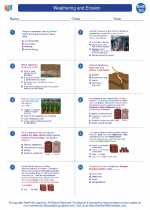Legumes
Legumes are a type of plant that belong to the Fabaceae family, which includes beans, peas, and lentils. They are valued for their nutritional content and ability to enrich the soil with nitrogen. Here is a detailed study guide for the topic "legumes".
What are Legumes?
Legumes are plants that have pods with their seeds inside. They are known for their ability to fix nitrogen in the soil through a symbiotic relationship with nitrogen-fixing bacteria known as rhizobia.
Nutritional Content
Legumes are a rich source of protein, fiber, vitamins (such as folate and vitamin B6), and minerals (such as iron, potassium, and magnesium). They are also low in fat and can be a good source of plant-based protein for vegetarians and vegans.
Types of Legumes
Some common types of legumes include:
- Beans (e.g., kidney beans, black beans, and chickpeas)
- Peas (e.g., green peas and split peas)
- Lentils (e.g., green, red, and brown lentils)
- Soybeans
- Peanuts
Health Benefits
Consuming legumes has been associated with various health benefits, including:
- Lowering cholesterol levels
- Improving blood sugar control
- Reducing the risk of heart disease
- Supporting digestive health due to their high fiber content
Culinary Uses
Legumes are used in a variety of culinary dishes, such as soups, stews, salads, and side dishes. They can also be ground into flours for baking or processed into products like tofu and tempeh.
Environmental Importance
Due to their ability to fix nitrogen in the soil, legumes play a crucial role in crop rotation and sustainable agriculture. They are often used as a cover crop to improve soil fertility and reduce the need for synthetic fertilizers.
.◂Earth Science Worksheets and Study Guides High School. Weathering and Erosion

 Worksheet/Answer key
Worksheet/Answer key
 Worksheet/Answer key
Worksheet/Answer key
 Vocabulary/Answer key
Vocabulary/Answer key
 Vocabulary/Answer key
Vocabulary/Answer key
 Vocabulary/Answer key
Vocabulary/Answer key
